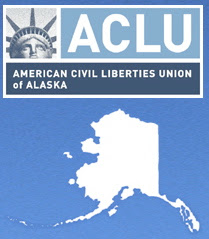by E. Ross
The California Supreme Court decided on Thursday that it's unconstitutional to ban same-sex couples from civil marriage. We won!
Sixty years ago, the California court struck down the state ban on interracial marriage, and twenty years later the US Supreme Court threw out the federal ban. Thursday's ruling is another big step forward for marriage equality, for California and for America.
Last night, they had one heck of a party in California. On June 15, if all goes well, gay and lesbian couples will be able to get legally married. Just in time for Gay Pride Week.
This ruling could have consequences that reach far beyond marriage in one state:
- The court found that discrimination against gays and lesbians is similar to discrimination based on race and gender. This designation can be used to challenge all kinds of anti-gay discrimination.
- The marriage ban was found unconstitutional even under the more difficult conditions of "strict scrutiny."
- The court found that both the form and substance of the institution must be equal. If opposite-sex couples can get "married," then same-sex couples can get "married" too.
- The ruling says that gay and lesbian relationships deserve the same respect and dignity as heterosexual relationships, in addition to equal rights, responsibilities and recognition.
- California does not have a residency requirement for marriage, and couples do not have to prove that the marriage will be legal in their home state or country. The marriages will not be recognized by states like Alaska, but that does not prevent Alaskan couples from getting married in California.
- When a huge, politically and economically powerful state like California starts marrying gay and lesbian couples . . . well, let's just say that there could be a profound ripple effect. There could also be a profound backlash.
I'm turning the rest of this historic marriage equality post over to the words and thoughts of LGBT Alaskans and our Allies.
Here are quotes from the official statements from Alaskans Together for Equality and the ACLU of Alaska.
Tim Stallard, Alaskans Together for Equality:
Alaskans Together is excited by the California Supreme Court Decision that strikes down the state's ban on gay marriage. The court recognized that marriage is a basic human right and it could not justify denying this right based on a person's innate sexual orientation. It is a great day for humanity that this important state Supreme Court acknowledged that gay and lesbian Americans are due the same rights under the constitution as other Americans. While there may be an initial backlash by those who do not believe gays and lesbians deserve equal rights, given the immense California economy and the state's leadership in American culture, gay and lesbian Alaskans should expect this decision to cascade across the USA.
Tiffany McClain, ACLU of Alaska's LGBT Public Policy Coordinator:
The ruling was decided by the California courts based on the California constitution and is not binding on Alaska courts. However, ACLU members and all Alaskans who support ending discrimination are celebrating this victory with our allies in California because it gives us hope that the rest of the country—including Alaska—will eventually follow suit, and that the movement to afford equal rights to all Americans, including LGBT Alaskans, will succeed.
The following are personal comments by individuals in our community. They are members and leaders of various groups, but these comments are not official statements, just personal reactions.
Mary Bess Bohall, Empress 35 of the ICOAA:
I think this is amazing victory for the GLBTA. But we have not won the war yet. There will be some backlash to this decision. We need to be united and continue our strong stand on this. Being a united community we will stand firm.
Marsha Buck, Treasurer of PFLAG Juneau and Co-Chair of Alaskans Together for Equality
I am incredibly happy about the California decision! I just talked to a friend who said she and her partner spent last evening considering a trip to California to get married. They had already received a call from another couple, who are active in PFLAG Juneau, who have decided FOR SURE to go to California to be married. This good news definitely impacts us personally as Alaskans. Way to go California! I'm sending off several personal checks to make certain this decision is not overturned in November.
Tonei Glavinic, Youth Representative for Identity:
While this victory is obviously not the end of the struggle, it provides an important legal precedent that could lead to similar victories in other states in the very near future.
Elias Rojas, Alaskans Together for Equality and the National Gay and Lesbian Task Force:
This is a great day for the LGBT movement! It's a great day for Equality! It's a hopeful day for gay and lesbian Alaskans. The California Supreme Court got it right! We should all celebrate today and begin organizing in Alaska tomorrow. This fight in California is far from over.
The LGBT movement and the California LGBT community will need our help to keep same-sex marriage in California. A discriminatory Consitutional Amendment that would ban same-sex marriage has already been submitted and will qualify to be placed on the ballot in November in California. If passed, it will nullify same-sex marriage in California. We must help defeat it. This effort will be the biggest campaign the LGBT community has ever experienced, costing more than 20 million dollars.
The Alaska LGBT community can have an impact. We can play a big part in helping defeat this measure by speaking to our friends, our relatives, and especially voters who live in California and ask them to support marriage equality and get involved. Please consider supporting the Equality for All campaign by visiting their website at
www.equalityforall.com and donating today.
Let's enjoy this day and let's begin organizing tomorrow.
Shayle Hutchison, member of PFLAG Fairbanks:
Yesterday was a powerful victory - the language used by the court could have a significant positive impact on other LGBTQ civil rights issues. Historically, we are following a pattern of past civil rights successes. That doesn't mean our struggle is over. In fact, now more than ever is the time to mobilize and organize as a community.
Sara Boesser, Alaskans Together for Equality, PFLAG Juneau, and author of "Silent Lives: How High a Price?"
I'm thrilled with the California Supreme court decision to allow us to marry. It's recognition of the obvious: for us to have equal protection of the law, we must have equal rights and responsibilities under the law. Seems so simple, doesn't it?
I'm savoring the day, the week, because I know a painfully difficult path is still ahead for California if a statewide ballot allows all Californians to (again!) vote on whether or not we're first- or second-class citizens. I don't envy that struggle ahead. I intend to give more money to our side in that campaign than to any in my life.
To those against us who cry (falsely) that a democracy should not be decided by judges, I cannot understand how deeply they must have their heads in the sand to even consider forming those words.
Because: judges have made possible truly precious quantum leaps in our democracy that our nation now is proud to claim and proud to try to export oversees: judges' decisions made integration possible, judges made interracial marriage legal. Does anyone imagine for a nanosecond that either would have survived a popular vote? Of course not. If religious and conservative groups had mounted ballot initiatives back then to overturn those historic judgments, integration and interracial marriage would have been stopped in their tracks.
But Americans didn't take it upon themselves to put minority rights to a majority vote over integration or interracial marriage, even though feelings and tempers were as hot or hotter about those issues at the time as some feel now about same sex marriage. Instead, the decisions were allowed to stand: the law said "equal," and judges had finally determined "equal" didn't mean exceptions. And the populace – or at least the majority of the populace – began their slow shift to accept a larger definition of equality than they'd been born and bred to even consider.
It's in the hallowed fabric of America: judges' actions make for historic, life-changing, permanent decisions that anger some and elate others.
So it should be on same sex marriage. A popular vote would have killed integration and interracial marriage – and certainly many other things. But in the checks and balances that democracy is supposed to offer, sometimes it's right and fitting and necessary for judges to step further into democracy than the voting public is yet ready to go.
So to California – my heartfelt congratulations, and empathy too, for the still-hard road ahead.







